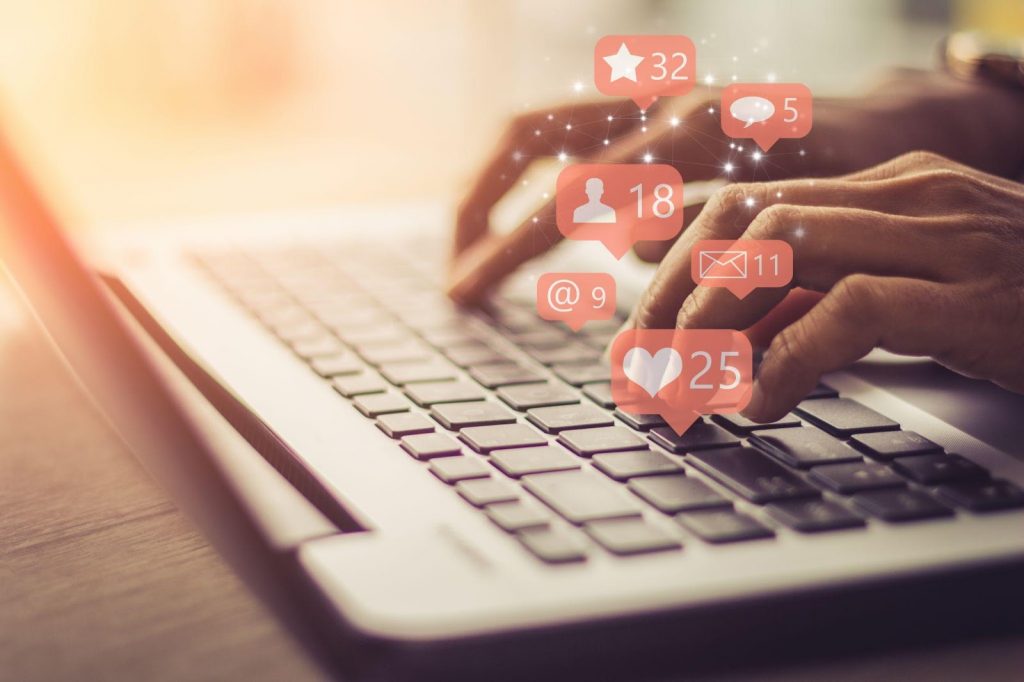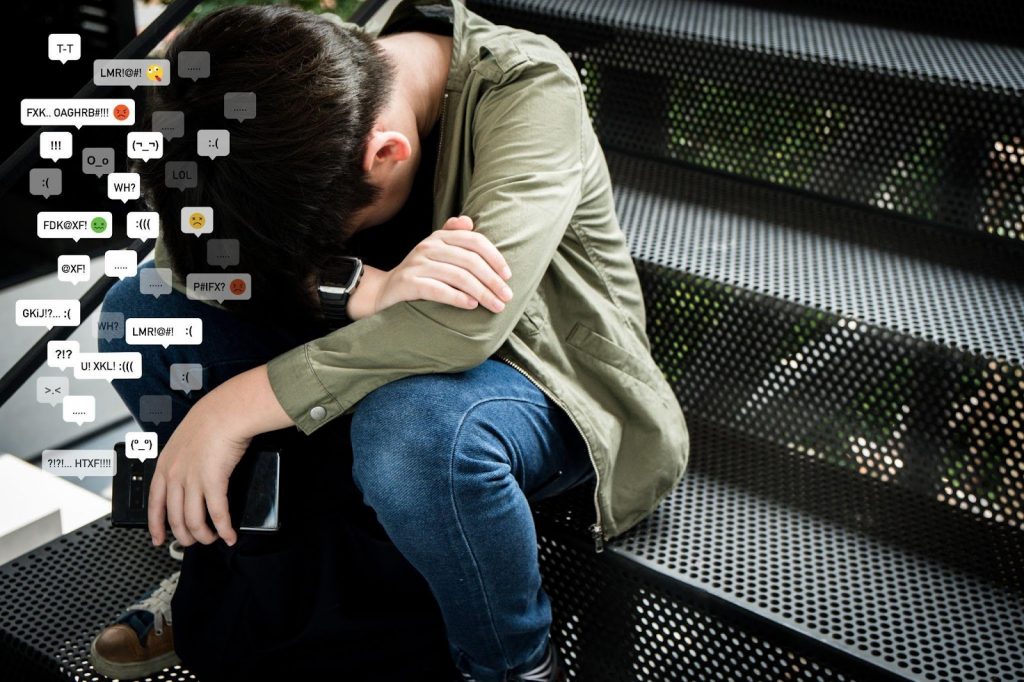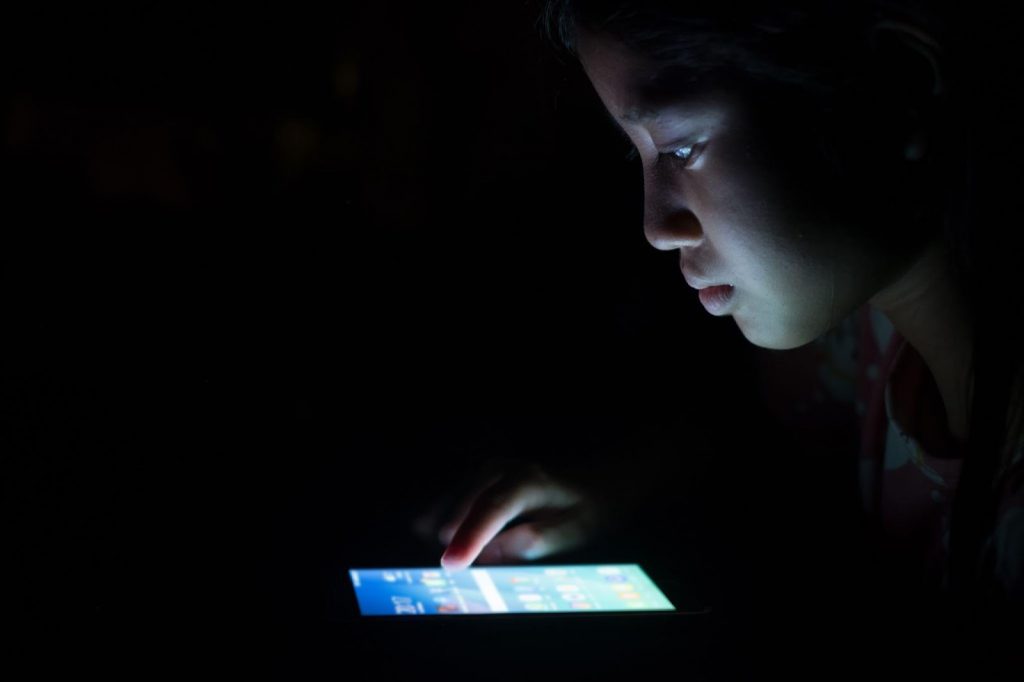Likes, Shares, and Mental Health Woes — Is Social Media Driving Youth Mental Health Decline?
This article hopes to examine the relationship between social media usage and mental health while exploring the detrimental effects of excessive digital engagement on psychological well-being.
Posted on 13 Mar 2024
Written by
Dr Jared Ng, Connections MindHealth
In the digital age, the omnipresence of social media in the lives of young individuals has sparked a global debate on its impact on mental health. This discourse, however, is not without precedent; it mirrors historical anxieties surrounding new “technologies” and their potential effects on youthful minds. Reflecting on the 18th and 19th centuries, as books and novels became accessible en masse, similar fears emerged. Critics voiced concerns that these “novel” forms of entertainment might captivate too intensely, risking harm to the pliable minds of the young. In 1907, an editorial titled “Do Boys Read Too Much?” questioned the impact of mass-market fiction on the mental acuity and focus of young readers, foreshadowing today’s worries that perhaps, in an ironic twist, young people now read too little. This historical perspective underscores the cyclical nature of societal concerns regarding the impact of media on youth, setting the stage for the contemporary debate on social media’s role in shaping mental health.
Singapore’s Deputy Prime Minister Lawrence Wong, on February 7, announced an initiative [1] that brings this debate into the modern era, launching a comprehensive research project aimed at understanding the escalating mental health issues among youth, focusing on social media’s role. This initiative underscores the complex relationship between digital engagement and psychological well-being, marking a renewed interest in exploring how platforms designed to connect and inspire might also be sources of stress, anxiety, and feelings of inadequacy.
Recent research [2] points to a complex picture. It suggests that while social media has the power to connect and inspire, it also harbours the potential to induce stress, anxiety, and feelings of inadequacy. This article hopes to examine the relationship between social media usage and mental health while exploring the detrimental effects of excessive digital engagement on psychological well-being.

The Double-Edged Sword of Social Media
Social media, in its essence, is a paradox. On one hand, it’s a revolutionary tool that has transformed how we connect, communicate, and consume information. It has democratised content creation, gathered global communities around niche interests, and provided platforms for traditionally marginalised voices. The ability to instantly connect with anyone, anywhere, has made the world smaller and more accessible. For youths, social media can be a vibrant space for self-expression, learning, and exploration. It offers a sense of belonging, a place to find like-minded individuals, and opportunities for activism and social change.
However, the flip side of this connectivity is its capacity to impact the mental health of young users negatively. For a vivid illustration, consider the story of a patient I encountered during my time in the hospital, whom we’ll call John for confidentiality. John’s tale is a stark reminder of social media’s potent influence over self-esteem and mental well-being. After his social media account was suspended for “buying” followers, John experienced profound emotional distress, so severe that he contemplated suicide. During our clinical interview, he confessed that his self-worth had become inextricably linked to the number of “likes” and followers on his profile. This dependency on digital validation for self-esteem is not an isolated phenomenon but a reflection of the broader challenges posed by social media’s role in our lives.
This constant quest for validation [3] through likes, comments, and followers can transform social media into a perilous game where self-worth hangs precariously on online approval. John’s story exemplifies how this relentless pursuit of digital acknowledgement can exacerbate feelings of anxiety and depression, creating a cycle of dependence challenging to escape. Furthermore, the impact of social media extends beyond psychological effects, manifesting in real life through disrupted sleep patterns and sedentary behaviour, which can further erode mental and physical well-being.

Reflecting on this, it’s essential to recognise the natural human desire for validation, a sentiment that transcends the digital realm. Just as we observe the counters on our social media profiles—likes, reposts, shares, followers—we find parallels in the academic and professional worlds. For instance, scientists, doctors, and researchers derive a form of validation from seeing their journal publications cited. This desire for acknowledgement and affirmation is a fundamental aspect of human nature. However, the key difference lies in the context and the extent to which this need for validation governs our self-esteem and overall mental health.
Caught in the “Comparison Trap?” — How Social Media Affects Mental Health
Central to the discourse on social media’s impact on mental health is the pervasive role of comparison and expectation. This phenomenon, deeply embedded in the fabric of online interaction, fuels much of the anxiety and dissatisfaction experienced by young users. With endless feeds of curated content, social media platforms craft an environment where the lives, achievements, and appearances of others are constantly showcased. This setting primes what psychologists refer to as “social comparison theory” [4], the idea that individuals determine their own social and personal worth by comparing themselves to others.
The “comparison trap” [5] on social media is particularly insidious. It extends beyond comparing oneself to friends and family, reaching into the realms of celebrities, influencers, and strangers with massive followings. These comparisons are rarely fair or realistic, pitting the everyday realities of one’s life against the polished highlight reels of others.
Photos and stories are meticulously selected and edited to highlight the best moments, accomplishments, and aspects of people’s lives, side-lining the ordinary, mundane, and challenging experiences everyone faces. For young people, whose self-identity and self-esteem are in critical phases of development, this distorted reality can cultivate feelings of inadequacy, low self-worth, and the perception of falling short of peers’ standards online.
Moreover, social media doesn’t just facilitate comparison; it amplifies unrealistic expectations. Users, particularly youths, are inundated with portrayals of exceptional lifestyles, bodies, and successes, creating a vast divide between expectation and reality. The urge to meet these online personas’ standards can lead young individuals to chase unattainable ideals, fostering frustration, self-criticism, and mental distress.

The consequences of this relentless comparison and the clash between expectation and reality are profound. Studies [6] have linked excessive social media use to increased rates of anxiety, depression, and other mental health issues among adolescents and young adults. The mechanism is straightforward: when individuals, especially youths, gauge their worth by the standards of online portrayals, they are predisposed to disappointment and psychological strain. The gap between how they perceive their own lives and the lives of others online can expand, potentially leading to feelings of isolation, envy, and diminished self-esteem.
In my talks about youth mental health, I often discuss the effects of social media, drawing from personal observations and professional experience. As a member of “Gen X” (yes, that shows my age), my comparators in youth were classmates, neighbours, or friends from the local playground. Today, the range of comparators for young people has expanded globally, courtesy of social media. This boundless arena for comparison magnifies the pressure and challenges they face, emphasising the urgent need for awareness, education, and strategies to navigate the complex web of online social interaction healthily and positively.
In sharing the story of a patient, John (not his real name), who spiralled into extreme emotional distress after his social media account was suspended for buying followers, the real-world implications of these dynamics become starkly evident. John’s admission that his self-worth was entirely tied to “likes” and followers underscores the dangerous potential of social media to influence mental health negatively. This quest for approval, when rooted in the ephemeral and often superficial metrics of social media, can lead to profound psychological distress.
By drawing on these examples and integrating the broader context of social comparison from my youth to the present, we can better understand the complex landscape of social media and its impact on mental health. It’s a call to action for individuals, families, and professionals to engage in meaningful dialogues and interventions that can steer young people towards healthier, more balanced interactions with social media.
Cyberbullying and Online Harassment — Another Threat to Mental Well-Being
As a result of the increased use of social media, cyberbullying and online harassment have become widespread problems, which significantly affect the mental health of many young people. While a boon for privacy and freedom of expression, the anonymity afforded by social media platforms also serves as a double-edged sword, which causes some users to engage in behaviour they might not otherwise exhibit in person.
Unlike traditional bullying, cyberbullying offers no respite; victims can be reached at any time and place, which makes it an omnipresent source of stress and anxiety. Studies [7] have consistently shown a troubling correlation between cyberbullying and an increased risk of mental health problems, including depression, anxiety, and even suicidal ideation. The relentless nature of online harassment can erode self-esteem, amplify feelings of isolation, and trigger a cascade of psychological distress.
Moreover, the vastness of the internet and the sheer volume of interactions on major platforms pose significant challenges to monitoring and enforcing guidelines against bullying and harassment. While social media companies have made strides in developing algorithms and reporting tools to combat such behaviour, the reactive nature of these measures often means that the harm has already been done. The delay in response, combined with the difficulty in tracing anonymous accounts, further exacerbates the problem, which leaves victims feeling helpless and unsupported.

The Impact of Screen Time on the Mental and Physical Well-Being of Youths
Research [8] suggests that excessive screen time is increasingly concerning for its detrimental impact on the physical and mental health of youth. Staring at screens late into the night interferes with melatonin production, the hormone responsible for regulating sleep-wake cycles. This disruption to the body’s natural rhythm makes it harder for individuals to fall asleep and significantly diminishes the quality of rest they receive. The consequences of this lack of restorative sleep extend beyond mere fatigue, affecting cognitive functions and mood and leading to heightened levels of stress and anxiety. Moreover, the allure of screens often detracts from physical activity, fostering a sedentary lifestyle that can amplify health issues like obesity, which, in turn, impacts mental well-being.
Additionally, the surge in screen time has markedly curtailed opportunities for face-to-face social interactions, which are pivotal in developing and maintaining robust social skills. This decline in direct human contact may culminate in feelings of isolation and loneliness, adversely affecting social health and overall mental well-being. The skills garnered through in-person interactions—such as empathy, interpreting non-verbal cues, and expressing emotions effectively—are vital for personal development and sustaining healthy relationships. As screen time usurps these invaluable interactions, young individuals may find it increasingly challenging to forge and maintain meaningful connections, further affecting their mental health in an era where connectivity, paradoxically, should be at its zenith.
Furthermore, it is crucial to acknowledge that our time is finite; we only have 24 hours a day. Time spent in front of screens is time not spent sleeping, engaging with friends in person, or participating in physical exercise. In a world where digital engagement is omnipresent, recognising and managing how we allocate our time is more critical than ever. Every hour spent online is an hour less for activities that nurture our physical health, mental well-being, and real-world relationships. Time is a commodity we cannot manufacture or purchase; thus, it’s essential to prioritise how we spend it to ensure a balanced, healthy lifestyle in the digital age.

Balancing the Scale: Strategies to Mitigate Social Media’s Impact on Youth Mental Health
A multifaceted strategy is essential to effectively mitigate social media’s adverse impacts on youth mental health. This approach encompasses enhancing digital literacy, offering parental guidance, enforcing platform responsibility, and advocating a balanced lifestyle between the online and offline worlds.
Central to this strategy is the education of youths in digital literacy. They need to learn how to assess and navigate the vast array of online content critically. Understanding the mechanics behind social media algorithms and recognising the curated nature of digital personas enables young individuals better to manage the psychological effects of their digital interactions. This knowledge empowers them to differentiate between realistic and manipulated portrayals of life online, fostering a healthier relationship with social media.
Parental guidance also plays a critical role in moderating the impact of social media on young minds. Parents should initiate open dialogues with their children about the benefits and challenges of online engagement. Together, they can establish healthy boundaries around screen time. Importantly, if parents choose to use devices and apps to monitor their children’s screen time, this should be done transparently. Monitoring activities should always be conducted with the child’s knowledge and consent to maintain trust and foster open communication within the family. Covert surveillance can erode the foundational trust between parent and child, leading to further issues.
Recognising that children are at various developmental stages is crucial in tailoring approaches effectively. What might be appropriate for younger children, such as direct supervision and structured screen time, may not suit teenagers navigating the path toward independence. For teenagers, it’s about negotiating boundaries that respect their autonomy while ensuring their safety online. This nuanced approach acknowledges their need for privacy and independence, fostering a sense of responsibility and self-regulation in their digital interactions.
Social media platforms themselves must shoulder responsibility for creating safer online spaces. Implementing stringent policies against cyberbullying, enhancing privacy settings, and making reporting tools more accessible are essential measures to protect young users from the potential harms of online engagement.
Encouraging a balanced life is equally important. Young people should be motivated to engage in offline activities and face-to-face interactions. This not only mitigates the risks associated with excessive screen time but also promotes a well-rounded social and emotional development. It’s about finding harmony between digital connections and real-world experiences, ensuring youths develop healthy social skills and maintain physical activity.
Mental health professionals are integral to addressing the nuanced challenges posed by social media on youth mental health. By integrating discussions of social media use into therapy, creating digital wellness resources, and advocating for mental health-focused policy reforms, they play a key role in fostering a safer digital environment. Importantly, they recognise that excessive engagement with digital platforms may sometimes stem from underlying conditions such as addiction or social anxiety. This insight enables them to provide targeted therapeutic interventions, addressing the symptoms and root causes of unhealthy digital habits.
Furthermore, these professionals offer crucial support to parents and youths, guiding them through the complexities of digital behaviour and its impacts. By treating underlying mental health issues and educating families about healthy digital practices, mental health experts significantly improve overall digital wellness and promote healthier relationships with technology. Their efforts ensure a comprehensive approach to mental health in the digital age, highlighting the importance of addressing both immediate and underlying issues related to social media use.
Ultimately, developing resilience in young people to navigate the digital world confidently requires collaborative efforts among educators, parents, platforms, and mental health experts. By promoting digital literacy, engaging in open and honest conversations, respecting the developmental needs of young people, and encouraging a balanced lifestyle, we can create a supportive environment that enables youths to thrive online and offline.
References
- Anto, A., Asif, R. O., Basu, A., Kanapathipillai, D., Salam, H., Selim, R., Zaman, J., & Eisingerich, A. B. (2023). Exploring the impact of social media on anxiety among university students in the United Kingdom: Qualitative study. JMIR Formative Research, 7, e43037. https://doi.org/10.2196/43037
- Correspondent, G. Y. H. (2024, February 7). Research to look at surge in youth mental health issues; causes could include social media use. The Straits Times. https://www.straitstimes.com/singapore/politics/research-to-look-at-surge-in-youth-mental-health-issues-causes-could-include-social-media-use
- Using social media for reassurance and validation | psychology today. (n.d.). Retrieved February 29, 2024, from https://www.psychologytoday.com/intl/blog/liberate-yourself/202111/using-social-media-reassurance-and-validation
- How social comparison theory influences our views on ourselves. (n.d.). Verywell Mind. Retrieved February 29, 2024, from https://www.verywellmind.com/what-is-the-social-comparison-process-2795872
- The comparison trap | psychology today. (n.d.). Retrieved February 29, 2024, from https://www.psychologytoday.com/us/articles/201711/the-comparison-trap
- Hilty, D. M., Stubbe, D., McKean, A. J., Hoffman, P. E., Zalpuri, I., Myint, M. T., Joshi, S. V., Pakyurek, M., & Li, S.-T. T. (2023). A scoping review of social media in child, adolescents and young adults: Research findings in depression, anxiety and other clinical challenges. BJPsych Open, 9(5), e152. https://doi.org/10.1192/bjo.2023.523
- Li, C., Wang, P., Martin-Moratinos, M., Bella-Fernández, M., & Blasco-Fontecilla, H. (2022). Traditional bullying and cyberbullying in the digital age and its associated mental health problems in children and adolescents: A meta-analysis. European Child & Adolescent Psychiatry. https://doi.org/10.1007/s00787-022-02128-x
- Nakshine, V. S., Thute, P., Khatib, M. N., & Sarkar, B. (n.d.). Increased screen time as a cause of declining physical, psychological health, and sleep patterns: A literary review. Cureus, 14(10), e30051. https://doi.org/10.7759/cureus.30051

